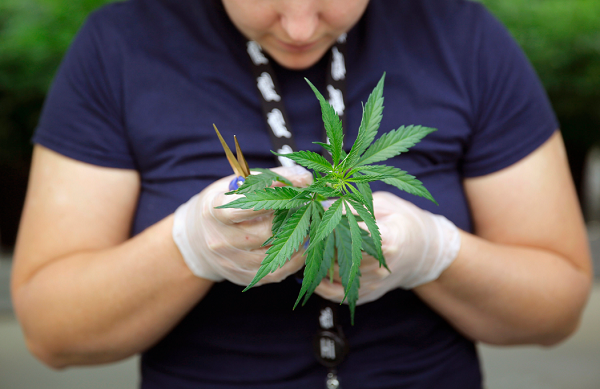Legal Marijuana In Mexico: Medical Drug Bill Passed By The Senate

Medical marijuana may soon be available in Mexico after its senate passed new legislation approving use of cannabis for ailing patients on Tuesday. The new measure is the first major step towards outright legalization in Mexico, according to reports. Mexico’s lower house still needs to approve the bill, which President Enrique Pena Nieto first submitted to congress in the beginning of the year, before medical marijuana use officially becomes Mexican law.
Mexico already started allowing medicine with cannabidiol, the active chemical ingredient of marijuana, back in 2015. However, the medicine was only granted on a case-by-case basis. The new law would allow people with a variety of medical ailments to have legal access to the plant and the use of marijuana products containing the plant’s psychoactive ingredient, tetrahydrocannabinol, or THC as it’s often referred to.
"It's been years that we've been fighting for acknowledgment and approval and recognition of the medical and therapeutic uses of cannabis, and today we finally have something,” Lisa Sanchez of Mexico Unido Contra la Delincuencia, a crime-stopping organization, told Reuters.
The measure was approved by the Mexican senate by 98-7.
Positive Steps! Mexico Senate Passes Medical Marijuana Bill. https://t.co/Okf7lI5aeT pic.twitter.com/YoCH2hdBEo
— High Times (@HIGH_TIMES_Mag) December 14, 2016
Mexico has been taking steps to ease up on marijuana laws for quite some time now. Although recreational use is still completely banned, Reuters reported the country's Supreme Court granted four people the right to grow and use their own marijuana for personal consumption last year. In April, the government considered relaxing possession laws, decriminalizing possession of small amounts of cannabis for personal use.
In a country where drug cartels still bring in about $1.5 billion profit in marijuana sales, according to a 2010 report by RAND Corporation, lawmakers in Mexico say legalizing the drug could disrupt cartel’s power and strong presence throughout the country, especially since transport across U.S. borders has declined due to more quality marijuana being grown and sold legally in 28 states.
“In the long run, as the U.S. legalizes marijuana, Mexico is going to have a tough time competing with lawful American suppliers,” John Walsh, a senior associate for human rights group Washington Office on Latin America, told New York Times. “That doesn’t mean they won’t have a business plan, it’s just that marijuana will be removed from it.”
© Copyright IBTimes 2025. All rights reserved.






















